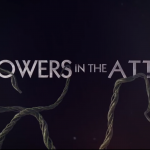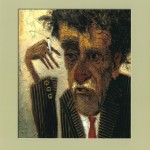Every Monday in Citizenship Confusion, Alan Noble discusses how we confuse our heavenly citizenship with citizenship to the state, culture, and the world.
This summer I have been somewhat dutifully working on my dissertation, which will address the manifestation of signals of transcendence in Twentieth Century American Fiction. Whatever that means. (Maybe I’ll tell you when I know.) In preparing to write, I recently re-read what many would consider to be a quintessential “dark” or “depressing” novel: The Catcher in the Rye.
It is a dark book. But it’s also beautiful, which is part of the reason why I’m writing about it. Salinger has a way of capturing the absurd, brutal baseness of life (think of the old history teacher, Mr. Spencer, with “his sad old bathrobe with his chest showing, and that grippy smell of Vicks Nose Drops all over the place”) along with its incomprehensible niceness (see: the image of Phoebe on the carousel). It is certainly not an easy book to get through, but it is lovely… if you wrestle with it. If, on the other hand, you allow yourself to get stuck on the rottenness of the novel’s world, then you’ll miss all the beauty. (Also See: Books Besides the Bible: The Case for Franny and Zooey)
Which is just about exactly what has happened historically with those who have tried to ban The Catcher in the Rye. As a number of scholars have pointed out, censors tried to ban the novel for its inclusion of the “F word,” as if the novel would spread indecency, even though the whole point of including the word was to show how Holden Caulfield hated that the word was graffitied on walls where children could see it. The word evokes the sense of disgust Holden feels toward the way the modern world ruins the innocence of little kids; ironically, to censor the word would be to shield the reader from acknowledging how ugly the world can be. So, Salinger included it.
My point: Sometimes we have to read hard, ugly, offensive, depressing things to understand our world, and thereby love our neighbor. I’m obviously not saying that Christians need to read The Catcher in the Rye but I do think that the novel’s censors illustrate how we sometimes cut ourselves off from hard truths — truths we would ultimately agree with if we wrestled with them — by avoiding dark, depressing, or ugly works of art. Reading is hard work. It takes time, effort, and reflection. And as Christians, we have a beautiful work of art filled with hard truths, ugly scenes, offensive claims, and moments of darkness at the very center of our faith! So, can cultivating good reading habits by reading unsettling novels help us become better Bible readers? I think so.
A few years ago, I wrote a feature article making this argument entitled, “How Reading Disturbing Novels can make you a Better Reader of the Bible”. In it I claimed:
[W]hen we choose to delve into challenging, disturbing, and even “sad” books, and devote the time to wrestling with the issues we find in them, we will be exercising our ability to read that foundational and central text of our Faith, which also confounds us with disturbing stories, challenging parables, depressing psalms, and depictions of sin and its effects.
It’s a long feature, but I think one of my more helpful pieces. Take a read and let me know what your thoughts are on how reading fiction might make us better Bible readers.











